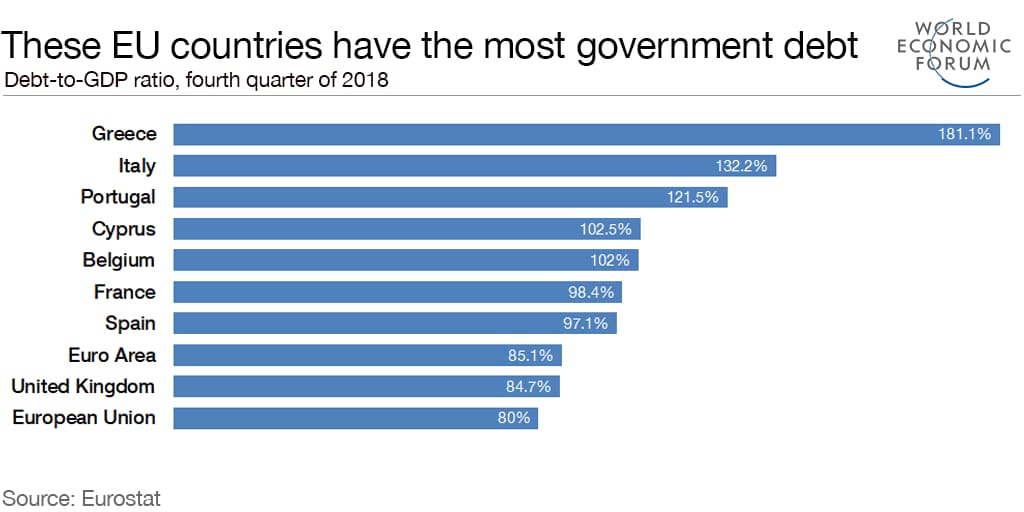These EU countries have the most government debt

Greece is revealed as the country with the highest government debt-to-GDP ratio in the EU.
Image: REUTERS/Yves Herman
Stay up to date:
Agile Governance
Greece has the highest government debt-to-GDP ratio of any European Union member state, according to new figures from Eurostat, the EU’s statistical office.
At the end of 2018, its debt stood at 181% of national GDP, an increase of 5 percentage points from the previous year. After struggling to control its overspending, the Eurozone country has received three successive bailout packages, leaving its people facing severe austerity measures.

Behind Greece’s extreme situation things become more stable, but debt ratios are high for several other nations. Italy is the EU’s second most debt-ridden state with a ratio of 132% of GDP, followed by Portugal and then Cyprus.
In total, eight member states’ debt exceeds averages for both the Eurozone – the 19 states using the euro – and the EU’s 28 member countries.
Low liability
At the other end of the scale, Estonia benefits from a debt-to-GDP level of just 8%. Belt-tightening austerity measures introduced following the 2008 financial crisis have left the nation with the lowest debt ratio of any EU state.
Year-on-year figures show some movement, with Cyprus, Greece and Italy each recording an increase in debt levels to 2018. While the debt ratio in France was unchanged, 24 states saw a decrease, most notably Lithuania, the Netherlands and Austria.
Internationally Japan holds the world’s highest debt to GDP ratio, with 237.6%, followed by Greece in second place.
Don't miss any update on this topic
Create a free account and access your personalized content collection with our latest publications and analyses.
License and Republishing
World Economic Forum articles may be republished in accordance with the Creative Commons Attribution-NonCommercial-NoDerivatives 4.0 International Public License, and in accordance with our Terms of Use.
The views expressed in this article are those of the author alone and not the World Economic Forum.
Forum Stories newsletter
Bringing you weekly curated insights and analysis on the global issues that matter.
More on Geo-Economics and PoliticsSee all
Mark Esposito
July 24, 2025
Aengus Collins
July 15, 2025
Guy Miller
July 15, 2025
Vijay Eswaran
July 7, 2025






